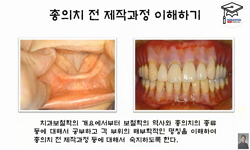The purpose of this study was to examine the effects of Technology instructionusing ARCS(Attention, Relevance, Confidence, and Satisfaction) model on thelearning motivation and academic achievement of middle School. To accomplishthis purpose, teaching...
http://chineseinput.net/에서 pinyin(병음)방식으로 중국어를 변환할 수 있습니다.
변환된 중국어를 복사하여 사용하시면 됩니다.
- 中文 을 입력하시려면 zhongwen을 입력하시고 space를누르시면됩니다.
- 北京 을 입력하시려면 beijing을 입력하시고 space를 누르시면 됩니다.

ARCS 모형을 적용한 ‘기계 운동의 원리’ 단원 수업의 효과 = The Effects of Using ARCS Model in the Unit of 'Principles of Mechanical Movement'
한글로보기https://www.riss.kr/link?id=A103799420
- 저자
- 발행기관
- 학술지명
- 권호사항
-
발행연도
2014
-
작성언어
Korean
-
주제어
ARCS model ; Motivation ; Academic achievement ; Technology instruction ; ARCS 모형 ; 동기유발 ; 학업 성취 ; 기술 수업
-
등재정보
KCI등재
-
자료형태
학술저널
- 발행기관 URL
-
수록면
235-252(18쪽)
-
KCI 피인용횟수
1
- 제공처
-
0
상세조회 -
0
다운로드
부가정보
다국어 초록 (Multilingual Abstract)
The results of the research have been summarized as follows.
First, as a result of the experiment using the pre-experimental design, thelearning motivation and all the motivating factors (Attention, Relevance,Confidence, and Satisfaction) of both the experimental and control groups did notshow statistically meaningful differences, while in the post-experimental design,there were statistically meaningful differences between both groups. Moreover, bothlearning motivation and all of the motivating factors(ARCS) were higher in theexperimental groups than in the control groups. Therefore, Technology instructionapplying the ARCS model was more effective in increasing learning motivationthan conventional type instruction.
Second, as a result of the experiment using the pre-experimental design, theacademic achievement of both the experimental and control groups did not showstatistically meaningful differences, while in the post-experimental design, therewere statistically meaningful differences between both groups. Moreover, theacademic achievement was higher in the experimental groups than in the controlgroups. Thus, Technology instruction applying the ARCS model was more effectivein increasing the academic achievement than conventional type instruction.
Therefore, we verified that the instruction using the ARCS model improved thelearners' motivation and academic achievement in Technology instruction.
The purpose of this study was to examine the effects of Technology instructionusing ARCS(Attention, Relevance, Confidence, and Satisfaction) model on thelearning motivation and academic achievement of middle School. To accomplishthis purpose, teaching-learning plans were developed for six class periods,implemented and evaluated using nonequivalent control group pretest-posttestdesign. The experiment was conducted across two groups, as follows: oneexperimental group that received instruction using ARCS model, and anothercontrol group that received conventional type instruction. The pretest-posttest scoresof experimental and control groups were compared. The scores were analyzed andevaluated by t-test at .05 significance level methods using SPSS/win 12.0.
The results of the research have been summarized as follows.
First, as a result of the experiment using the pre-experimental design, thelearning motivation and all the motivating factors (Attention, Relevance,Confidence, and Satisfaction) of both the experimental and control groups did notshow statistically meaningful differences, while in the post-experimental design,there were statistically meaningful differences between both groups. Moreover, bothlearning motivation and all of the motivating factors(ARCS) were higher in theexperimental groups than in the control groups. Therefore, Technology instructionapplying the ARCS model was more effective in increasing learning motivationthan conventional type instruction.
Second, as a result of the experiment using the pre-experimental design, theacademic achievement of both the experimental and control groups did not showstatistically meaningful differences, while in the post-experimental design, therewere statistically meaningful differences between both groups. Moreover, theacademic achievement was higher in the experimental groups than in the controlgroups. Thus, Technology instruction applying the ARCS model was more effectivein increasing the academic achievement than conventional type instruction.
Therefore, we verified that the instruction using the ARCS model improved thelearners' motivation and academic achievement in Technology instruction.
국문 초록 (Abstract)
이 연구를 통하여 얻은 결과를 요약하면 다음과 같다.
첫째, 학습 동기에 대해서 사전에는 실험 집단과 통제 집단의 학습 동기와학습 동기 하위 영역(주의집중, 관련성, 자신감, 만족감) 모두에서 통계적으로유의미한 결과를 보이지 않은 반면, 사후에는 실험 집단과 통제 집단 간에 통계적으로 유의미한 차이를 보였고, 실험집단이 통제집단보다 학습 동기와 학습동기 하위 영역 모두가 더 높게 나타났다. 따라서 ARCS 모형을 적용한 기술과수업이 전통적 수업에 비해 기술과 수업에 대한 학습 동기를 증가시키는데 더효과가 있는 것을 알 수 있었다.
둘째, 학업 성취도에 대해서 사전에는 실험 집단과 통제 집단이 통계적으로유의미한 결과를 보이지 않은 반면, 사후에는 두 집단 간에 통계적으로 유의한차이를 보였고, 실험 집단이 통제 집단보다 더 학업 성취도가 높게 나타났다.
이에 ARCS 모형을 적용한 기술과 수업이 전통적 수업에 비해 학업 성취도를증가시키는데 더 효과가 있는 것을 알 수 있었다.
이로써 본 연구는 ARCS 모형을 적용한 중학교 기술과 수업이 학습자의 동기를 유발시켜 학습 동기와 학업 성취도가 향상됨을 입증하였다.
이 연구의 목적은 중학교 기술 교과 수업에 ARCS 동기유발전략을 적용하여수업자료를 개발한 후 이 수업이 학습 동기와 학업성취도에 효과를 주는지 검증하는데 있다. 이 연구의 목적을 달성...
이 연구의 목적은 중학교 기술 교과 수업에 ARCS 동기유발전략을 적용하여수업자료를 개발한 후 이 수업이 학습 동기와 학업성취도에 효과를 주는지 검증하는데 있다. 이 연구의 목적을 달성하기 위해 ARCS 모형을 적용한 기술과수업의 교수.학습 과정안을 총 6차시 개발하였고, 이질 통제 집단 전후 검사설계를 사용하여, 실험집단은 ARCS 모형을 적용한 수업을, 통제집단에는 전통적인 수업을 적용하여 실험집단과 통제집단의 사전 점수와 사후 점수를 비교하였다. SPSS/win 12.0 프로그램을 사용, 유의도 .05 수준에서 독립표본 t 검정을 실시하여 효과를 검증하였다.
이 연구를 통하여 얻은 결과를 요약하면 다음과 같다.
첫째, 학습 동기에 대해서 사전에는 실험 집단과 통제 집단의 학습 동기와학습 동기 하위 영역(주의집중, 관련성, 자신감, 만족감) 모두에서 통계적으로유의미한 결과를 보이지 않은 반면, 사후에는 실험 집단과 통제 집단 간에 통계적으로 유의미한 차이를 보였고, 실험집단이 통제집단보다 학습 동기와 학습동기 하위 영역 모두가 더 높게 나타났다. 따라서 ARCS 모형을 적용한 기술과수업이 전통적 수업에 비해 기술과 수업에 대한 학습 동기를 증가시키는데 더효과가 있는 것을 알 수 있었다.
둘째, 학업 성취도에 대해서 사전에는 실험 집단과 통제 집단이 통계적으로유의미한 결과를 보이지 않은 반면, 사후에는 두 집단 간에 통계적으로 유의한차이를 보였고, 실험 집단이 통제 집단보다 더 학업 성취도가 높게 나타났다.
이에 ARCS 모형을 적용한 기술과 수업이 전통적 수업에 비해 학업 성취도를증가시키는데 더 효과가 있는 것을 알 수 있었다.
이로써 본 연구는 ARCS 모형을 적용한 중학교 기술과 수업이 학습자의 동기를 유발시켜 학습 동기와 학업 성취도가 향상됨을 입증하였다.
참고문헌 (Reference)
1 조일현, "학습과 수행을 위한 동기설계: ARCS 모형 접근" 아카데미프레스 2013
2 안범희, "학교 학습심리학" 도서출판 하우 1995
3 김수호, "중학교 기술 수업에서 학습동기에 대한 교사와 학생간의 ARCS요소별 분석" 안동대학교 교육대학원 2000
4 배민정, "중등 과학교사의 학습동기 증진전략 사용 인식 및 교과 가치 인식에 대한 분석" 한국교원교육학회 30 (30): 383-411, 2013
5 김종두, "수업에서 교사의 동기유발 - ARCS 모형을 중심으로" 한국교원교육학회 26 (26): 261-284, 2009
6 김민정, "미술교육의 동기유발에 관한 연구 : 패러디(Parody)활용을 중심으로" 계명대학교 교육대학원 2012
7 송계남, "동기설계과정 개발" 326-330, 2014
8 한주, "동기 유발 전략을 적용한 가정과 ‘청소년의 성과 친구관계’ 단원 교수·학습 과정안 개발" 한국가정과교육학회 23 (23): 87-103, 2011
9 남승권, "기술교과 학업 성취도에 영향을 미치는 요인에 대한 연구" 한국기술교육학회 13 (13): 23-44, 2013
10 Keller, J. M., "The Systematic Process of Motivational Design" 26 (26): 1-8, 1987
1 조일현, "학습과 수행을 위한 동기설계: ARCS 모형 접근" 아카데미프레스 2013
2 안범희, "학교 학습심리학" 도서출판 하우 1995
3 김수호, "중학교 기술 수업에서 학습동기에 대한 교사와 학생간의 ARCS요소별 분석" 안동대학교 교육대학원 2000
4 배민정, "중등 과학교사의 학습동기 증진전략 사용 인식 및 교과 가치 인식에 대한 분석" 한국교원교육학회 30 (30): 383-411, 2013
5 김종두, "수업에서 교사의 동기유발 - ARCS 모형을 중심으로" 한국교원교육학회 26 (26): 261-284, 2009
6 김민정, "미술교육의 동기유발에 관한 연구 : 패러디(Parody)활용을 중심으로" 계명대학교 교육대학원 2012
7 송계남, "동기설계과정 개발" 326-330, 2014
8 한주, "동기 유발 전략을 적용한 가정과 ‘청소년의 성과 친구관계’ 단원 교수·학습 과정안 개발" 한국가정과교육학회 23 (23): 87-103, 2011
9 남승권, "기술교과 학업 성취도에 영향을 미치는 요인에 대한 연구" 한국기술교육학회 13 (13): 23-44, 2013
10 Keller, J. M., "The Systematic Process of Motivational Design" 26 (26): 1-8, 1987
11 Keller, J. M., "Strategies for Stimulating the Motivation to Learn" 26 (26): 1-7, 1987
12 Mokhtar, M. Z., "Motivation and Performance in Learning Calculus through Problem-Based Learning" 3 (3): 1999-2005, 2013
13 Keller, J. M., "Motivation and Instructional Design : A Theoretical Perspective" 2 (2): 26-34, 1979
14 편은영, "Keller의 동기유발 전략을 적용한 중학교 가정‘영양과 식사’단원 교수·학습 과정안 개발" 한국가정과교육학회 21 (21): 159-173, 2009
15 송계남, "Keller의 ARCS 모형에 따른 기술·가정 2 교과서의 ‘자동화와 로봇’ 단원 내용분석" 한국기술교육학회 14 (14): 136-153, 2014
16 김유리, "Keller의 ARCS 모델에 따른 기술·가정 교과서의 기술 영역 내용분석" 충남대학교 교육대학원 2009
17 Keller, J. M., "How to integrate learner motivation planning into lesson planning: The ARCS model approach"
18 Keller, J. M., "Development and Use of the ARCS Model of Motivational Design" 10 (10): 2-10, 1987
19 Hung, I. C., "Applying ARCS Model for Enhancing and Sustaining Learning Motivation in Using Robot as Teaching Assistant" 6872 : 334-341, 2011
20 남동수, "ARCS 전략을 활용한 STEM 기반 로봇 프로그래밍 학습 프로그램 개발" 19 (19): 233-236, 2011
21 이대준, "ARCS 모형을 적용한 수업전략이 기술교과 학업성취도 및 동기유발에 미치는 영향" 충북대학교 교육대학원 2003
22 손국헌, "ARCS 모형에 근거한 실과 학습동기 수업설계모형 구안 및 적용 효과" 부산교육대학교 교육대학원 2005
23 박명자, "ARCS 동기유발 이론을 적용한 실과 수업이 아동의 진로인식에 미치는 효과" 한국실과교육학회 16 (16): 103-117, 2003
24 최영주, "ARCS 동기 유발 이론을 적용한 실과 수업이 학업성취도와 동기유발에 미치는 효과" 대구교육대학교 교육대학원 2006
25 김주현, "2007 개정 7학년 과학 교과서에 나타난 지구과학의 동기유발 요소 분석" 과학교육연구소 37 (37): 11-22, 2013
동일학술지(권/호) 다른 논문
-
중학교 기술 교과 실습 주제 선정 영향 요인의 우선순위에 관한 연구
- 한국기술교육학회
- 허혜연
- 2014
- KCI등재
-
직업기초능력평가 문제해결능력 평가틀에 대한 마이스터고 및 특성화고 교사와 산업체의 중요도와 타당도
- 한국기술교육학회
- 함승연
- 2014
- KCI등재
-
- 한국기술교육학회
- 이명훈
- 2014
- KCI등재
-
- 한국기술교육학회
- 임윤진
- 2014
- KCI등재
분석정보
인용정보 인용지수 설명보기
학술지 이력
| 연월일 | 이력구분 | 이력상세 | 등재구분 |
|---|---|---|---|
| 2026 | 평가예정 | 재인증평가 신청대상 (재인증) | |
| 2020-01-01 | 평가 | 등재학술지 유지 (재인증) |  |
| 2017-01-01 | 평가 | 등재학술지 유지 (계속평가) |  |
| 2014-01-08 | 학술지명변경 | 외국어명 : 미등록 -> THE KOREAN JOURNAL OF TECHNOLOGY EDUCATION |  |
| 2013-01-01 | 평가 | 등재학술지 유지 (등재유지) |  |
| 2010-01-01 | 평가 | 등재학술지 유지 (등재유지) |  |
| 2007-01-01 | 평가 | 등재학술지 선정 (등재후보2차) |  |
| 2006-01-01 | 평가 | 등재후보 1차 PASS (등재후보1차) |  |
| 2004-01-01 | 평가 | 등재후보학술지 선정 (신규평가) |  |
학술지 인용정보
| 기준연도 | WOS-KCI 통합IF(2년) | KCIF(2년) | KCIF(3년) |
|---|---|---|---|
| 2016 | 1.52 | 1.52 | 1.72 |
| KCIF(4년) | KCIF(5년) | 중심성지수(3년) | 즉시성지수 |
| 1.66 | 1.72 | 2.247 | 0.44 |




 KCI
KCI






